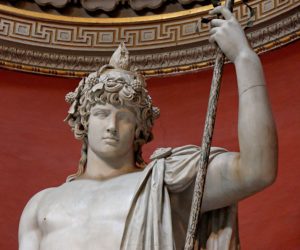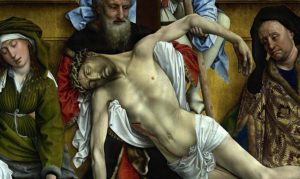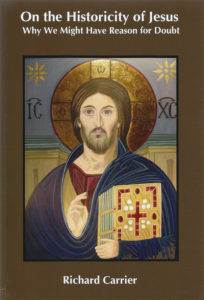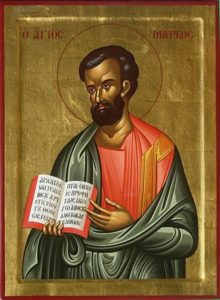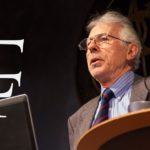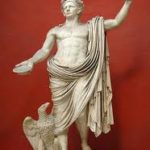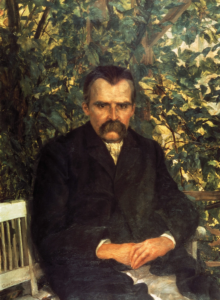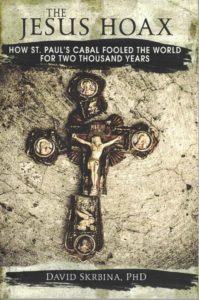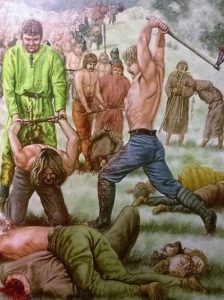by Laurent Guyénot
The two sides of the big lie
Is this quest really necessary? Can there be any benefit for Western civilization in questioning its already shaky Christian foundation? And is the Big Lie such a big deal? Before proceeding, I want to share my viewpoint on these questions, on which I have thought long and hard.
‘The greatness of White civilization sprung from the Christian faith.’ Such a statement seems hardly controversial. And yet, I think it is completely mistaken. The achievements of our civilization stem from the inner strength of our race, which include an exceptional propensity to ‘idealize’, by which I mean both to generate ideas and work toward their realization. The genius of our race is to be creators of powerful Ideas that drive us forward and upward. This capacity, which Søren Kierkegaard calls ideality (In Vino Veritas, 1845), is not to be confused with what we commonly call idealism, although it may be argued that idealism is our vulnerability, the weakness inherent to our strength.
For centuries, the Christian faith has been a vehicle—one could almost say a superstructure—for our yearning to idealize and realize; it has not produced it. Priests did not build the Cathedrals in which they officiated (most churches were collective ventures of cities, towns and villages); the troubadours and poets who elaborated the sublime ideal of love which is our ‘civilization’s miracle’ (Stendhal)[5], were not monks; Johann Sebastian Bach wrote Church music, but he was not an clergyman, and his Ave Maria would sound just as great if sung to Isis; many geniuses of our European pantheons, like Dante, Leonardo da Vinci or Galilee, were nominal Catholics by obligation, but secret lovers of Sophia (read my article ‘The Crucifixion of the Goddess’). The source of the artistic, scientific and cultural genius of the White race is not Christianity.
Kevin MacDonald makes a discreet but crucial point in his preface to Giles Corey’s The Sword of Christ when he writes that ‘the adaptive aspects of Christianity’ are what ‘produced Western expansion, innovation, discovery, individual freedom, economic prosperity, and strong family bonds.’[6] This is true if by ‘the adaptive aspects of Christianity’ we mean the aspects that are adopted and adapted from the ancient Greco-Roman-Germanic world, rather than from the Old and New Testament. Among the adaptive aspects of Christianity must be counted its various national colors. Russian Orthodoxy is good for Russia for the same reason that Confucianism is good for China: because it is a national Church, so that being a Russian Orthodox means being a patriot.
The same could be said in the past about Lutheranism for Germany or, in a narrower context, Catholicism for Ireland. But these national versions of Christianity are, in fact, in opposition to its universal (katholikos) mission statement—and to papal Rome. Family values are also adaptive aspects of Christianity. Jesus disavowed his family (Matthew 12:46-50) and Paul taught that, ‘it is good for a man not to marry,’ marriage being recommended only for those who cannot help fornicating (1 Corinthians 7). ‘Christian values’ are not Christian at all, they are simply conservative. In fact, if we look at its popular expressions, Catholicism has been so adaptive that it can be said to be more pagan than Jewish. What’s Jewish about Christmas or Mother Mary?
The problem with Christianity is with its non-adaptive and now prominent Jewish aspects. It is not just the grotesque notion that Jews are chosen, but the even more grotesque character of the god who chose them. Paradoxically, with its anthropomorphic—or should we say Judeomorphic—image of God inherited from the Torah, Christianity has laid the foundation for modern atheism, and, perhaps, harmed Gentile ideality irremediably. Because the Old Testament God is ‘a petty, unjust, unforgiving control-freak; a vindictive, bloodthirsty ethnic cleanser; a capriciously malevolent bully,’ Richard Dawkins decided to be an atheist, like the vast majority of scholars from Christian background.[7]
They have all, by their own admission, confused God with Yahweh, and fallen victim to the Big Biblical Lie. And because they cannot conceive God outside of the Biblical paradigm, they ban Intelligent Design from universities under the slanderous accusation that it is another name for the biblical God (watch the documentary Expelled: No Intelligent Allowed), whereas it is in fact a vindication of the Greek Sophia. The sociopathic Yahweh has ruined the reputation of God and led to modern Western godlessness.
And so the Big Jewish Lie begot the Big Atheist Lie—or shall we call it the Darwinian Lie? ‘Yahweh is God’ and ‘God is dead’ are opposed like the two sides of the same coin. Our materialistic civilization is in fact more Jewish than the Christianity it rejected, because materialism (the denial of any otherworld) is the metaphysical core of the Hebrew Bible (read my article ‘Israel as One Man’).
If Christianity could include, among its adaptive aspects, the rejection of the Old Testament’s Jealous God and the Big Lie of Jewish chosenness, then it would be redeemable. But Christians would rather sell their souls to the devil than become Marcionites. In two thousand years of existence, institutional Christianity has consistently evolved in the opposite direction, becoming more and more scriptural, Judaized, and Israel-centered: from Orthodoxy to Catholicism, and from Catholicism to Protestantism, the trend is unmistakable. What else can you expect from an institution that has always invited the Jews, and declared that they cease being Jews the moment they receive baptism?
And so Christianity is a dead end. It is now part of the problem, not the solution. It may have served us well for some centuries [Note of the Editor: Guyénot hasn’t read the ten volumes of Karlheinz Deschner’s Christianity’s Criminal History], but in the long run, it has been an instrument of Gentile enslavement to Jewish power. At least, it has not helped us to prevent it, and it cannot help us to overcome it. Many today ask: why are we so weak? It is high time to consider the obvious: having been taught for generations to worship and emulate the man nailed on the cross under Jewish pressure is not the best incentive to resist martyrdom. There is an obvious correlation between being told yesterday that it is moral to ‘love your enemies’ and getting jailed today for ‘hate speech.’
I hold no personal grudge against Christianity. Catholicism is a part of my happiest childhood memories, and the sound of Church bells never fails to strike a deep chord in me. My grandparents on my mother’s side were Catholic bourgeois who raised a large and happy family with sound moral values. If I could see any hope in this social class, I would be a political Catholic like Balzac, or a romantic Catholic like Chateaubriand. But Catholic bourgeoisie is near extinct, having never recovered from Maréchal Petain’s demise. Their children called them fascists and their grandchildren are addicted to pornography. Catholicism has deserted the country too: there are no priests, and what good is a country priest anyway if he cannot bless the crops at Easter?
Therefore, since I don’t believe that Jesus literally rose from his tomb, I consider that institutional Christianity has exhausted its potential for civilization in the West. Look at our pope, for Christ’s sake!
‘Inside every Christian is a Jew’ (Pope Francis).
I speak as a Frenchman, but I doubt that American Catholicism has much more Holy Spirit left. It died in Dallas with Arlen Specter’s magic bullet. Of course, there are brave Catholics like E. Michael Jones, who has captured the evil genius of the Jewish race in his indispensable book on The Jewish Revolutionary Spirit. But Professor Jones is the exception that proves the rule. And I am not even talking of American Protestantism, today a mercenary force for Zion.
______ 卐 ______
Editor’s Note:
In this the author is terribly mistaken. Jones is a thousand times worse than a Jew because, as a good Catholic, he is a vile traitor to his race (traitors are worse than external enemies). After he debated Jared Taylor a year ago, I wrote: ‘After 1:39 the Christian Jones showed his true colours. The moderator asked him: If the millions of non-white Muslims and blacks in France suddenly became Catholics should they be expelled? Emphatically Jones answered “No!… They could become Frenchmen, without any problem!” He even added that an African who migrated to Poland could become Polish as well…’
______ 卐 ______
[5] Stendhal, Love, Penguin Classics, 2000, p. 83.
[6] Giles Corey, The Sword of Christ: Christianity from the Right, or The Christian Question, Independently published, 2020, p. xiii.
[7] Richard Dawkins, The God Delusion, Houghton Mifflin, 2006, p. 51.

